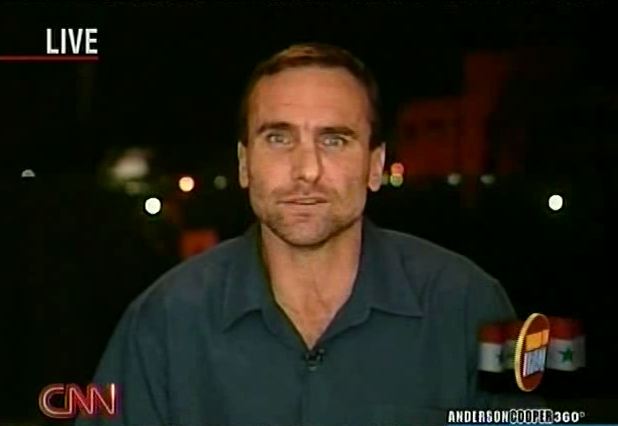AC: Is the Iraqi government up to the task?

Click photo to play
Length: 3:33
JOHN KING: For American generals and their troops on the ground, the U.S. strategy in Iraq is measured in bullets and bombs, not words.
CNN's Michael Ware joins me now from Baghdad.
Michael, you're there on the ground. This is the deadliest month of the year. Do you see any evidence that the strategy is changing, or is it likely to only get worse, in your view?
MICHAEL WARE, CNN CORRESPONDENT: Well, it's too early for the strategy to show signs of change at this point, John.
I mean, it's like turning a ship in, you know, full steam. It takes quite a while to turn a beast like this. I mean -- but it's clear that change is needed. I mean, all the institutions that have been built, all of the security apparatus that has been put together are under enormous strain.
They're heaving. And many of them are coming apart at the seams. The U.S. has invested all its political capital in essentially a toothless tiger. And that's the prime minister, Nouri al-Maliki. So, drastic change is certainly in the winds -- John.
KING: Michael, you mentioned all that political capital. The United States has also invested tens of billions of dollars, and has reshuffled, several occasions, its training regimen, promising it would finally get right the training of the Iraqi military, the training of Iraqi police.
Do you see any evidence that that is changing? And what must the Iraqis do to simply be better at what they have to do: protecting themselves?
WARE: Well, John, the Iraqi security forces are a great case in point.
I mean, the U.S. set benchmarks or targets of the number of trained Iraqis in the army, in the police, and in the national police commandos, somewhere just over 300,000-odd. We are within a few thousand of that number, trained, equipped police and army. Yet, look at the state of the country.
These security forces are so deeply penetrated by the insurgents. Some of them are effectively owned by the militias. Very few of them are actually capable. And even fewer are able to work in tandem with U.S. forces. And absolutely none can operate on their own, without the embrace of the U.S. forces, providing logistical support, helicopters, communications, and all sorts of things -- John.
KING: Michael, that's quite a sober, if not pessimistic, assessment.
And, yet, you hear all the talk from Washington now, the new talk from the White House, about milestones and benchmarks for the Iraqi government to improve its handling of the security situation, to get its people up and ready faster. Are they up to that task? And what happens if they don't meet those benchmarks?
WARE: Oh, there's absolutely no way that the current government is up to any task the U.S. may wish to set it, nor the Iraqi security forces.
We saw what has happened in numerous areas, most recently in the southern province of Maysan. When British troops withdrew from that provincial capital, that left that city owned by two rival Shia militias factions, both of whom, according to U.S. military intelligence, has contacts with Iran, is supplied, funded and trained by the Iranian Revolutionary Guard.
After the withdrawal of these forces, the Iraqi security forces were supposed to assume the mantle of responsibility. Yet, we have seen it erupt in fierce clashes, with police stations attacked and overwhelmed and all manner of chaos. There's now a curfew in place, with British troops poised to sweep in, if necessary. If that's the future, it's a bleak one -- John.
KING: Bleak indeed.
Michael Ware for us, live in Baghdad tonight, on the significant challenges still ahead -- Michael, thank you very much.
